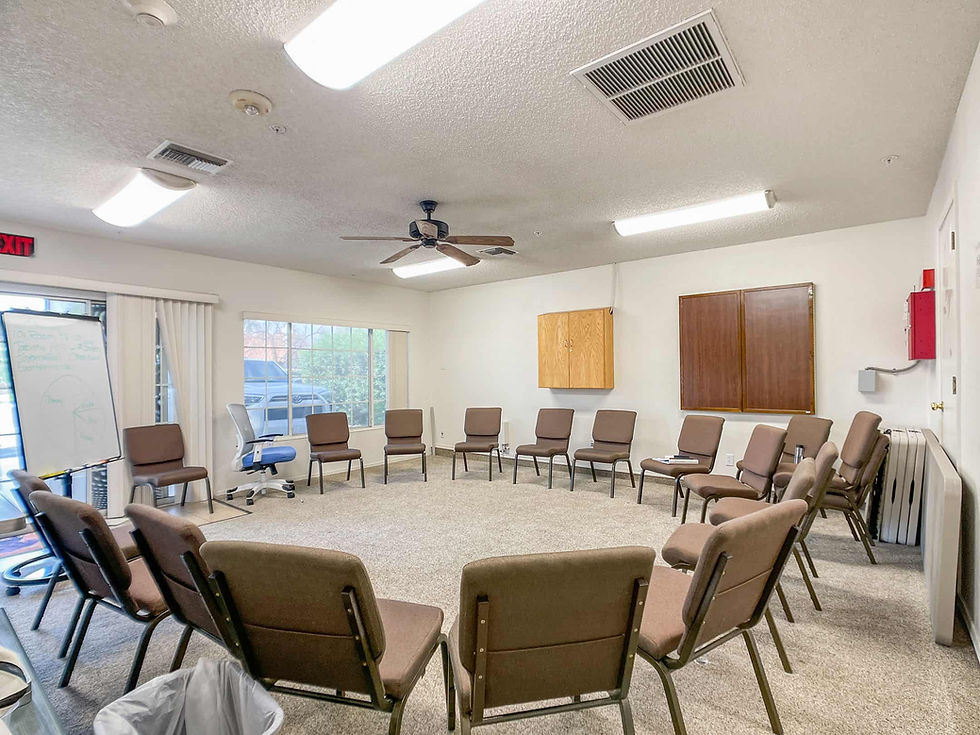Benefits of Choosing Gender-Specific Sober Living
- Chris Stanforth

- Sep 30, 2025
- 2 min read
Updated: Nov 6, 2025
Many individuals entering sober living find that gender-specific environments offer unique advantages. Men’s and women’s sober homes provide increased privacy and safety. This enables residents to speak openly about feelings and experiences specific to their gender. This is especially important in early recovery when vulnerability is high and trust may be difficult to establish. Gender-focused homes allow participants to share sensitive topics, such as past trauma, emotional triggers, or social pressures, without fear of judgment or misunderstanding.

Gender-specific Sober Homes
Gender-specific programming recognizes that recovery journeys often differ between men and women. These homes may offer specialized support groups, therapeutic activities, and mentorship that address gender-based challenges, such as stigma or family dynamics. In women’s homes, for instance, trauma-informed care might be prioritized. Meanwhile, men’s homes may emphasize leadership, conflict management, or rebuilding fatherhood skills. Such customization improves comfort and relevance, fostering greater engagement in recovery.
Benefits of Gender-Specific Environments
Residents in gender-specific sober homes also benefit from reduced distractions and romantic entanglements. The old saying, "the sick attracts sick and healthy attracts healthy," seems ever-wise to the recovered alcoholic. Co-ed environments, while supportive, sometimes present challenges in the form of personal boundaries, distractions, and interpersonal drama. By focusing exclusively on peer support within the same gender, homes can prevent unnecessary stress during the delicate early stages of recovery. This enhances focus and the ability to build genuine friendships without additional complications.
Building Connections and Community
Beyond clinical support, gender-specific homes foster a sense of belonging and pride. Shared activities and communal living help residents connect over common interests and challenges. Whether organizing fitness classes, group outings, or creative workshops, the environment often feels more approachable and inclusive for people who might otherwise feel alienated.
The Importance of Emotional Support Animals
In early sobriety, the presence of an emotional support animal can be a game-changer. These animals provide comfort and companionship, helping to ease anxiety and loneliness. They can also encourage residents to engage in daily routines, such as exercise and social interactions. The bond between a person and their emotional support animal can be incredibly healing, making the recovery journey feel less isolating.
In summary, choosing a gender-specific sober living home can be a pivotal decision in recovery. These environments offer comfort, targeted resources, and a strong sense of community. All of these play a central role in preventing relapse and building a foundation for lasting sobriety. I was told once that there would be plenty of time for love games later on. Investing in myself early on would pay dividends in my love life later on. Now, looking back, I know that was nothing short of the absolute truth.
Conclusion
The journey to sobriety is not just about abstaining from substances; it’s about creating a fulfilling life. Gender-specific sober living homes provide the tools, support, and community necessary for this transformation. With the right environment, individuals can thrive, build lasting connections, and ultimately achieve their goals. If you’re considering this path, remember that you’re not alone. There are resources and communities ready to support you every step of the way.



Comments